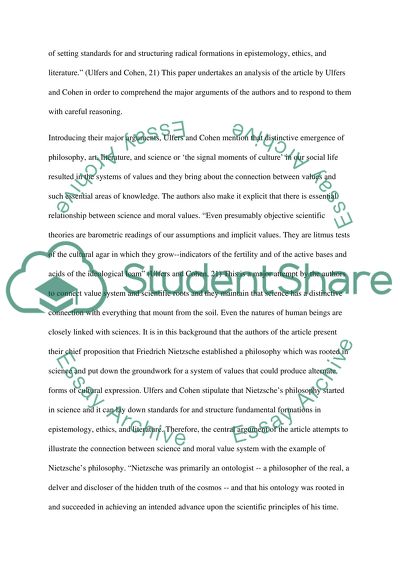Cite this document
(Friedrich Nietzsche: On the Genealogy of Morality Report Example | Topics and Well Written Essays - 1500 words, n.d.)
Friedrich Nietzsche: On the Genealogy of Morality Report Example | Topics and Well Written Essays - 1500 words. https://studentshare.org/philosophy/1524410-friedrich-nietzsche-morals
Friedrich Nietzsche: On the Genealogy of Morality Report Example | Topics and Well Written Essays - 1500 words. https://studentshare.org/philosophy/1524410-friedrich-nietzsche-morals
(Friedrich Nietzsche: On the Genealogy of Morality Report Example | Topics and Well Written Essays - 1500 Words)
Friedrich Nietzsche: On the Genealogy of Morality Report Example | Topics and Well Written Essays - 1500 Words. https://studentshare.org/philosophy/1524410-friedrich-nietzsche-morals.
Friedrich Nietzsche: On the Genealogy of Morality Report Example | Topics and Well Written Essays - 1500 Words. https://studentshare.org/philosophy/1524410-friedrich-nietzsche-morals.
“Friedrich Nietzsche: On the Genealogy of Morality Report Example | Topics and Well Written Essays - 1500 Words”. https://studentshare.org/philosophy/1524410-friedrich-nietzsche-morals.


